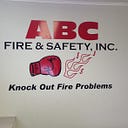Water Wisdom: Tips for Ensuring the Efficiency of Your Fire Sprinkler System
Introductions
Fire sprinkler systems are a critical component of any comprehensive fire safety plan. However, their effectiveness relies on proper maintenance and attention to detail. In this article, we will explore key tips for ensuring the efficiency of your fire sprinkler system, providing the water wisdom needed to keep these life-saving devices in optimal working condition.
Understanding the Basics
Before delving into maintenance tips, it’s crucial to understand the fundamental components and functioning of a fire sprinkler system.
1. Types of Fire Sprinkler Systems
Fire sprinkler systems come in various types, each designed for specific environments and fire risks. Understanding the type installed in your property is essential for targeted maintenance.
2. Sprinkler Activation
Sprinklers are activated by heat, not smoke. Each sprinkler head is individually activated when the surrounding temperature reaches a predetermined level, ensuring a localized response to the fire source.
3. Water Supply
Fire sprinklers are connected to a dedicated water supply, often a municipal water system or a separate water tank. Regular checks on the water supply’s reliability are crucial for the system’s overall efficiency.
Tips for Ensuring Sprinkler System Efficiency
1. Regular Inspections
Regular inspections are the backbone of fire sprinkler system maintenance. Engage a qualified professional to inspect the system periodically, checking for corrosion, leaks, and any physical damage to the pipes or sprinkler heads.
2. Keep the Area Clear
Ensure that the area around sprinkler heads is free from obstructions. Furniture, storage, or other items should not block or interfere with the proper functioning of the sprinklers. A clear zone allows for unobstructed water distribution.
3. Test Alarms and Control Valves
Regularly test the system’s alarms and control valves to guarantee their functionality. Alarms alert occupants to a potential fire, while control valves regulate water flow. Testing these elements ensures a comprehensive evaluation of the system’s readiness.
4. Monitor Water Pressure
Maintain optimal water pressure within the system. Low water pressure can hinder the effectiveness of the sprinklers, while excessive pressure can lead to leaks or bursting. Regularly monitor and adjust water pressure as needed.
5. Address Corrosion Promptly
Corrosion is a common issue in fire sprinkler systems, especially in areas with high humidity. Address any signs of corrosion promptly, replacing affected components and applying protective measures to prevent future corrosion.
6. Regular Flow Tests
Perform regular flow tests to ensure that each sprinkler head is functioning correctly. This involves opening a test valve to simulate water flow, providing a real-time assessment of the system’s performance.
7. Update and Modernize
If your property’s fire sprinkler system is outdated, consider updating or modernizing it. Newer systems often come with enhanced features, increased reliability, and improved efficiency.
8. Educate Occupants
Educate building occupants about the importance of not interfering with or obstructing sprinkler heads. A well-informed community contributes to a safer environment and helps prevent accidental damage to the system.
9. Monitor for Changes in the Environment
Changes in the building environment, such as renovations, alterations, or changes in occupancy, can impact the effectiveness of the fire sprinkler system. Monitor for these changes and make necessary adjustments to the system.
10. Develop a Maintenance Schedule
Create a comprehensive maintenance schedule outlining regular checks, inspections, and tests. This schedule ensures that no aspect of the fire sprinkler system is overlooked and helps in the proactive identification of potential issues.
Conclusion: Safeguarding with Water Wisdom
In conclusion, fire sprinkler system is paramount when it comes to ensuring the efficiency of your fire sprinkler system. Regular inspections, clear surroundings, and proactive maintenance are the pillars of a reliable system. By following these tips and developing a consistent maintenance schedule, you contribute to the overall safety of your property, safeguarding lives and assets. Remember, the effectiveness of a fire sprinkler system lies not just in its installation but in the ongoing commitment to its care and maintenance.
